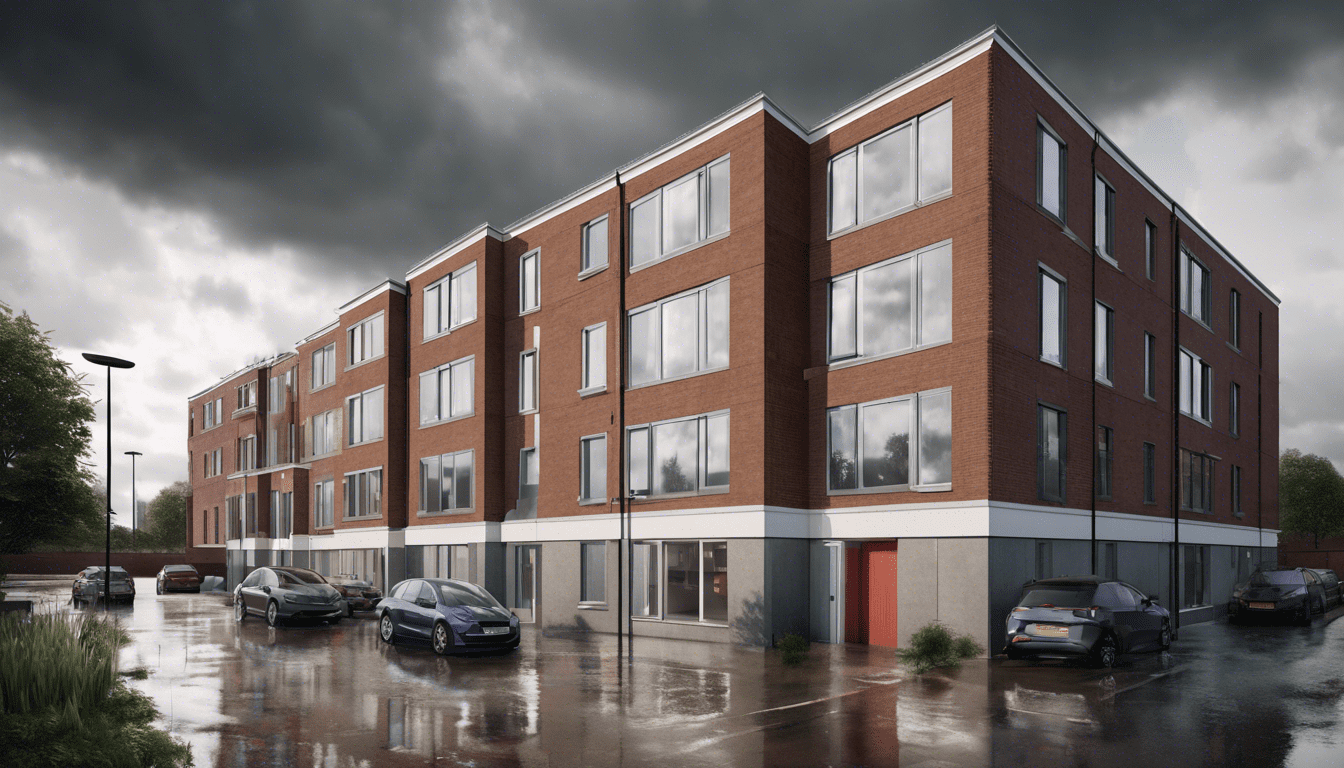In a controversial decision, the Somerset Council’s planning committee has approved a new 30-bed House in Multiple Occupation (HMO) on Friarn Street in Bridgwater, despite mounting concerns over potential flooding and inadequate parking facilities. This approval comes in the wake of local councillors expressing significant apprehension related to the risks posed by the nearby Durleigh Brook, alongside concerns about the deterioration in local parking conditions and character. The ongoing debate surrounding this development highlights the tensions between urban development and community needs in Bridgwater, revealing a complex interplay of local government priorities and resident well-being.
Key Takeaways
- The Somerset Council approved a 30-bed HMO in Bridgwater despite significant flooding and parking concerns.
- Local councillors criticized the decision, highlighting the risks of over-development and its impact on the community.
- Debate over the HMO’s approval revealed differing opinions on parking needs for residents living in HMOs.
Background of the HMO Approval Process
In November 2024, the Somerset Council’s planning committee made headlines by approving a new 30-bed House in Multiple Occupation (HMO) on Friarn Street in Bridgwater, demonstrating a significant shift in the local housing landscape. The decision came despite escalating concerns from local councillors regarding flooding and parking shortages. Town council leader Brian Smedley expressed dismay over the increased flood risk posed by the nearby Durleigh Brook, highlighting a pattern of over-development that reportedly has emerged following the dissolution of the Sedgemoor District Council. He articulated fears that such approvals threaten the historical integrity of nearby buildings and exacerbate existing parking shortfalls in the densely populated area. Councillor Kathy Pearce shared these sentiments, urging caution as she noted that the current infrastructure seemed unable to support further residential expansion. In a contrasting viewpoint, Councillor Alastair Hendry defended the project, positing that many future HMO residents are unlikely to own cars, thereby alleviating potential parking issues. After an hour-long debate, the committee approved the plans with a majority vote of seven in favor and three against, marking a pivotal moment in Bridgwater’s housing strategy.
Concerns Raised by Local Councillors and Community Impact
The approval of the 30-bed HMO development has sparked robust discussions within the community, particularly concerning its implications for local infrastructure and historical preservation. Community members have echoed concerns about the sustainability of current amenities in the wake of significant population increases attributed to such developments. Critics argue that insufficient parking and heightened flood risks threaten not only individual properties but also the overall livability of the area. According to residents, the existing public services, including transport and waste management, are already stretched thin, raising questions about how the council plans to accommodate the even larger resident base. Furthermore, with the emphasis on HMOs as a solution to housing shortages, the long-term socio-economic impacts of this trend on communities remain uncertain, as analysis suggests a rise in transient populations and potential challenges for local businesses reliant on stable customer bases.
Feel free to contact us via WhatsApp, social media, or email.





